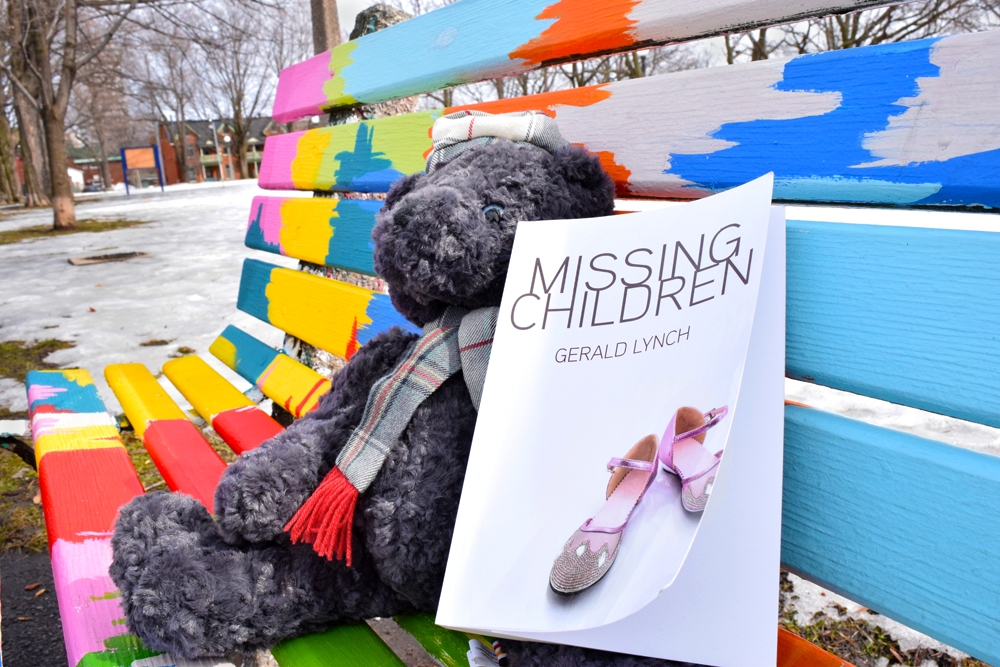
Book Review: Missing Children by Gerald Lynch
As tethered to the rest of the world as it is, Ottawa often feels like a small, even private, city. That’s why it can be so jarring to open a local book and find a character stepping into a park or market where you’ve spent countless hours or even just recognize the name of. In Vincent Lam’s Bloodletting and Miraculous Cures, there’s a scene where one character almost dies in a bike crash on Sussex and Rideau. When I read that scene, instead of being alarmed, all I could think was ‘hey, I bike down that street all the time. Awesome!’
Gerald Lynch’s third novel set in the fictional Ottawa neighbourhood of Troutstream, Missing Children, is filled with great local references. Early on, the aging protagonist Dr. Lorne Thorpe takes his daughter to the Museum of Science and Technology, references to the Ottawa Citizen and CBC abound, and beneath it all lurks the murderous ‘Market Slasher.’ You can probably guess what area of the city he’s named after.

Dr. Thorpe’s adventure begins during a September heat wave with a morning visit to the Science and Tech museum. The visit is supposed to give him a chance to bond with his 10-year-old daughter Shawn. But the plan backfires horrifically when the girl goes missing while Thorpe stares into the chicken incubator, lost in the miracle of life.
This tragedy shatters Thorpe’s sleepy life and the plot barrels forward from there. When sharp and ambitious detective Kevin Beldon determines that the case is a kidnapping – part of a sudden string of child disappearances – Thorpe is drawn into a mystery that can’t be solved by his reliable array of sarcastic comments and dad jokes.
In Missing Children, Lynch has taken a calculated risk by putting such an unlikeable character at the helm of his story. Dr. Thorpe is easy to hate. He’s mean, offensive and incapable of taking most things seriously. Fortunately, Lynch surrounds Thorpe with more likeable characters, including his saintly wife and a detective who seems more dedicated to Shawn’s case than Thorpe. Their frustration with the protagonist reflected mine, and made Dr. Thorpe feel like a realistic portrayal of a deeply flawed, but still good, man.
Keeping the main character interesting is one of Missing Children’s greatest strengths. Although the characters are all consumed by the disappearances, Thorpe’s march towards old-age is a persistent and engaging subplot. Before Shawn is literally taken from him, both of Thorpe’s children are metaphorically drifting away as they become their own people. He gets tired more easily, and his job weighs on him more heavily. The theme of aging is front and centre from Missing Children’s opening line: “No matter a Saturday night, for a long time already we’d been going to bed earlier.”
Related: Book Review, The Gospel Truth.
Thorpe’s brief reflections on growing older are some of the book’s most beautiful and human moments. However, if you have more of taste for mystery than literature, the kidnapping and sudden reappearances of Troutstream’s children should keep you hooked.
Missing Children was my first outing to Troutstream, which by this third book Lynch has built into a fascinating community. The town is populated by interesting characters who had me intrigued every time their stories crossed with Dr. Thorpe’s. I couldn’t help but wonder if these people are the central figures in the other books, dealing with their own problems as they walk past Dr. Thorpe washing his beloved Cadillac. These stolen glimpses of other stories breathe life into Lynch’s fictional setting, and Troutstream is a convincingly idyllic town set between a prison and sewage treatment plant. I think I’ll have to visit again soon.
You can find Missing Children in local stores or on Amazon.









